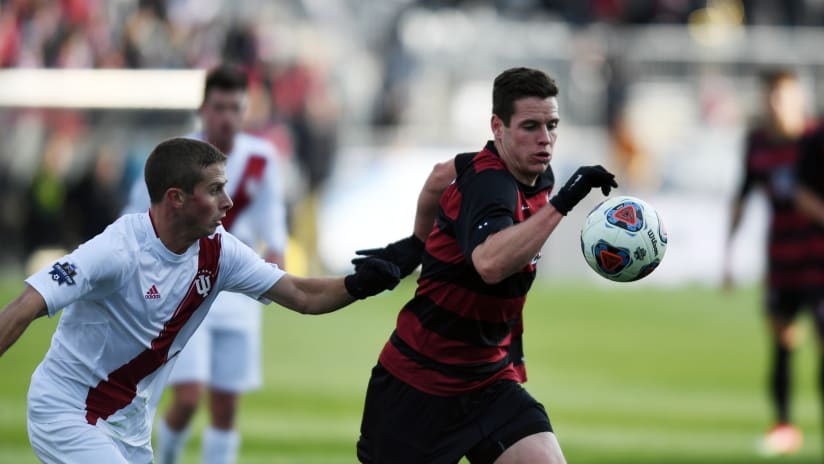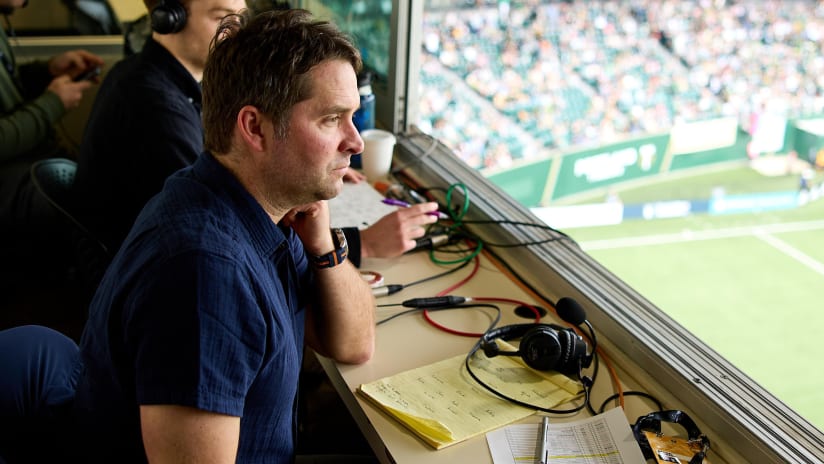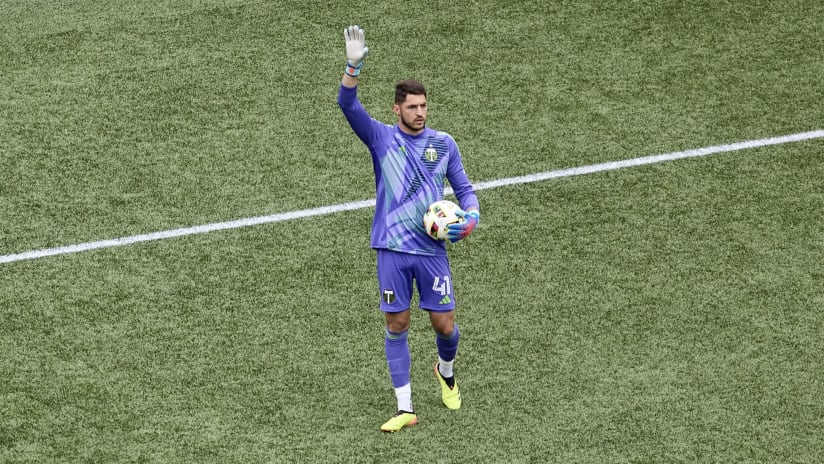Last week, Stanford University won its third consecutive NCAA Men’s College Cup championship, defeating Indiana University 1-0 in double overtime.
Sam Werner, the former Timbers Academy player, pounced on a defensive mistake in the Indiana penalty area and hit a blistering shot past Hoosier goalkeeper Trey Muse. It's a moment that Werner says he's replayed “a million times” already in his mind.
“It's still hard to remember if there was one specific thought that I had going into it,” he recalled. “I just remember seeing the [Indiana defender] take a touch and just lunging at him hoping to nick the ball and when it bounced in front of me, just hoping to put it on frame and test the keeper.
“But it all happened so fast,” laughed the 2017 College Cup Most Outstanding Player. “I don't know if I've processed the whole thing yet.”
The celebration is ON for the third straight year for @StanfordMSoccer! #CollegeCuppic.twitter.com/qiX0dBjk2m
— NCAA Soccer (@NCAASoccer) December 10, 2017
That same disbelief could just as easily apply to the Cardinal's recent collegiate dominance, a run of form only surpassed by the University of Virginia's four College Cup victories between 1991 and 1994.
But the on-field successes of both Werner and his fellow Timbers Academy alumnus Foster Langsdorf have been a huge part of Stanford's stunning ascent. When the pair spoke with Timbers.com in 2015, they could never have predicted the circuitous paths they would take to the summit of NCAA soccer.
For Langsdorf, the College Cup victory provided the storybook ending to a remarkable college career. Since becoming a starter at forward in 2015, the Vancouver, Wash., native has scored 36 goals and tallied 11 assists for the Cardinal. This year, he was named the Pac-12 Player of the Year—his second straight—and was a semifinalist for the MAC Hermann Trophy, awarded to the year's best collegiate player. Langsdorf also scored the game-winner for Stanford in the 2017 College Cup 2-0 semifinal win over Akron, with Werner adding a goal of his own in the second half.
When discussing the leap he made between his freshman and sophomore seasons, Langsdorf points to the pain he felt sitting on the bench.
“I had that feeling of being on the bench and realizing that's not what I wanted to do after my freshman year and I improved a little bit,” he said with characteristic understatement.
Over the past three years, Langsdorf has taken his place among the most talented forwards in collegiate soccer. Time and again he's found that narrow pocket of space between the defenders or had the awareness to stay just onside or absorbed the punishment of acting as a true target forward.
The results—15 goals in 2016 and 14 goals in 2017—speak for themselves, but they have only come after countless failures.
“You can try things out in practice and of course get yelled at by the coaches and then you know you're doing something wrong,” he explained. “I think it just takes a bit of training until it becomes almost an instinct and you do it without thinking because if you're doing it on instinct rather than thinking about it, then you're doing it much faster because it's much more natural.”
Both players, however, credit their experiences with the Timbers Academy for aiding their, at times, challenging transition to life at Stanford.
For Langsdorf, that meant learning how to act like a professional day-in and day-out.
“You want to eat light the night before a game. You want to make sure you're prompt to the training session and by that, I mean you're arriving early, you're always asking questions of the coaches, and [you're] just constantly being engaged,” he said. “I think that's what the Academy taught me the most because it really was a professional environment.”














